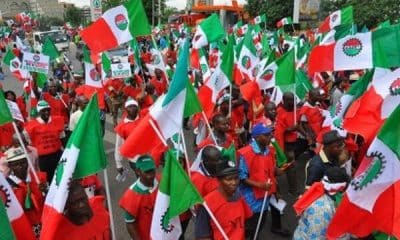The Federal Government (FG) has taken legal action against organized labour, including the Nigeria Labour Congress (NLC) and the Trade Union Congress (TUC), following their nationwide protest on Wednesday, 2nd August 2023. The unions gathered in designated spots across megacities to protest the removal of fuel subsidy by the government.
In response to the protest, organized labour had also threatened to embark on an industrial strike to pressure the government into addressing their demands. Subsequently, the federal government filed a contempt proceeding against the labour groups, accusing them of defying a court order that restrained them from undertaking any industrial action.
Earlier, the NLC had issued a seven-day ultimatum, demanding the reversal of what they termed “anti-poor” and “insensitive” policies. These policies included the recent increase in petrol prices and sudden hikes in public school fees, among others.
However, renowned human rights lawyer, Femi Falana, defended the unions, asserting that the strike action did not constitute contempt of court and that peaceful protests were within their fundamental rights. In contrast, Beatrice Jedy-Agba, the solicitor-general of the federation, argued that the planned strike and protests aimed to disrupt public peace and instill fear among the masses, hence should not be considered peaceful.
Jedy-Agba also pointed out that the subject matter, which is the primary cause of the action, is currently sub judice, and both parties are expected to maintain the status quo until the court hears and decides on the matter.
Ruling on an ex-parte motion filed by the federal government, Justice Olufunke Anuwe granted an order restraining the NLC and TUC from proceeding with any planned industrial action or strike until the court hears and determines the motion on notice filed by the federal government.
The situation remains tense as the federal government seeks to address the labour unions’ grievances while simultaneously insisting on the court order being upheld to prevent any further disruption. As both sides hold their ground, the fate of the ongoing dispute now rests in the hands of the judiciary.

























